- Call on : (+260) 211 252611
- Open Hours : Mon-Fri 08:00 - 17:00
Specialised Audits
 Introduction
Introduction
The Specialised Audits Directorate was established in 2006 in response to the need to improve service delivery in the public sector; maximize value for money in the use of public resources; safeguard public assets; and act as deterrence to fraud and corruption.
Structure of the Directorate
The directorate is headed by a Director who is assisted by two Assistant Directors in charge of Forensic and Investigations audits and Information Technology Audits.
Forensic and Investigations Audits
This Unit carries out forensic audits in response to vices such as Asset Misappropriation, Financial Statement Fraud, Corruption, money laundering and other related vices which may occur in Ministries, Provinces and Other Spending Agencies. The stated vices are detrimental to the Social and Economic development of the Country and in averting the existence or emergence of the frauds the Section carries two types of Forensic Audits, namely Pro-active and Reactive Forensic Audits.
Forensic Audit is like a living organism which is very dynamic and in order to respond to the challenges the section has been trained and equipped with modern high tech forensic audit equipment such as FTK, ACL, Construction Forensic Tool Kits and Encase among others.
The major role of this Section is to derive evidence which can be adduced before the courts for successful prosecution of suspects who may be found wanting of any fraudulent activities relating to government resources. In fulfilling its mandate the Section works closely with the Law Enforcement Agencies to ensure that persons named in the forensic audit reports are successfully prosecuted. The types of fraud undertaken meets a wide spectrum such as:
- General Financial Fraud
- Procurement Fraud
- Construction Fraud
- Physical Assets Fraud
- Payroll Fraud
- Insurance Fraud
- Corruption and Money Laundering etc
Clientele
The Unit does not have a specific clientele as it responds to all the three organs of government as long as there is need for its services.
Information Technology (IT) Audits.
Government entities have increasingly adopted Information and Communication Technologies (ICT) to conduct their functions and to deliver various services. The continuous development of ICTs has made it possible to capture, store, process and deliver information electronically. This transition to electronic processing has necessitated significant changes in the environment in which Supreme Audit Institutions (SAIs) carry out their work. There is therefore need for auditors to gain assurance on such computerised systems to derive appropriate audit conclusions. IT systems are also commonly referred to as Information Systems (IS).
This unit carries out information systems audits in the Ministries, Provinces and other Spending Agencies (MPASs).Others are parastatal organisations and any institution that receives government grants or subventions.
The main objective of the Unit is to provide an independent IT assurance on whether the Management Information Systems in place are designed to maintain data integrity, safe guard assets, and dispense information to authorised parties as well as determine whether organisational goals are being achieved effectively and resources used efficiently.
The Unit focus on all its assignments can be summarised as evaluating the systems controls (application and general) for its clients to assure that they are providing Confidentiality, Integrity and Availability (CIA) to all its users.
Among the areas that the Unit reviews includes General and Applications Controls, Information Processing Facilities, Systems Development and Implementation (Pre and Post Implementation), Management of IT (Governance) and Enterprise Architecture, Cyber Security Issues, Network and its associated infrastructure.
These reviews are usually performed by IT auditors or in conjunction with a financial auditors as integrated audits
